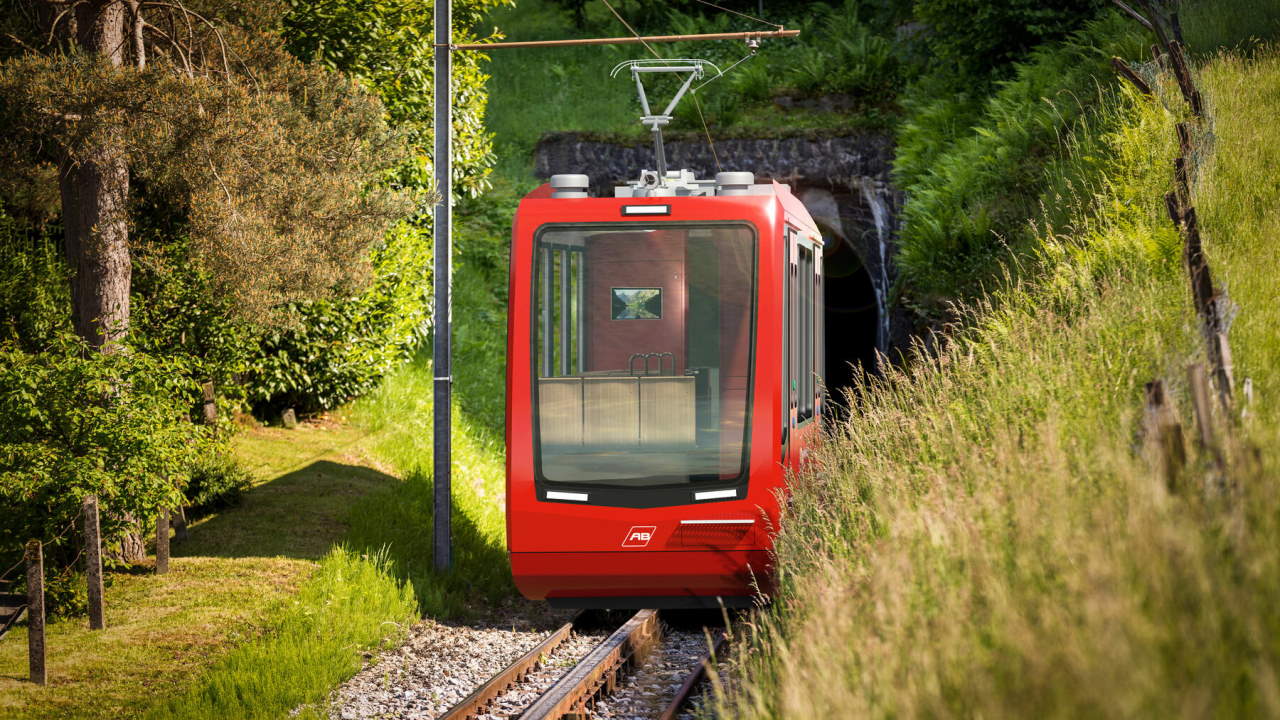Stadler, the Swiss railway rolling stock manufacturer, has signed the contract with Appenzeller Bahnen to bring the world’s first fully automated overland adhesion/rack-and-pinion vehicles to the Rheineck to Walzenhausen line.
The current train operating on the Rheineck to Walzenhausen line has been hard at work for more than 64 years and due to its age is now ready to be replaced.
Appenzeller Bahnen has ordered the innovative rack-and-pinion vehicle to be completely equipped for automated operation using Stadlers Communication-Based Train Control (CBTC) solution.
The contract marks Stadler‘s first time equipping a mountain rail vehicle using its own Communication Based Train Control system. The cutting-edge system will allow for automated and driverless operation based on the system expansion level. Stadler will use the highest automation level 4 (GoA4) for the vehicle which means that it can operate with no members of staff on board. Appenzeller Bahnen team members working at its operation centre will be able to control the train’s operations via remote control.

Currently, fully automated railways are successfully operating all over the world in tunnels and in closed track system environments which can exclude obstacles on the line safely. These systems see the track monitored at all times to guarantee that no obstacles are present. The Rheineck to Walzenhausen line is different to these railways in that it will see a fully automated train running on an open system with free-field conditions. Stadler’s Communication Based Train Control system will therefore be essential in monitoring the track, exposing any obstacles. The impressive new train will see the Rhieneck to Walzenhausen line as the world’s very first fully automated overland adhesion/rack-and-pinion rail vehicle.
Commissioning of the groundbreaking vehicle is expected in 2026.
Marc Trippel, Head of Stadler’s Signalling Division said: “The implementation of automated and driverless operation on the Rheineck–Walzenhausen line is a milestone in the digitalisation of rail operations. The project will represent valuable pioneering work for automated rail transport on intercity routes. Railway digitalisation projects around the world will benefit as a result. We are proud to be leading the way in association with Appenzeller Bahnen and look forward to working together,”






Responses